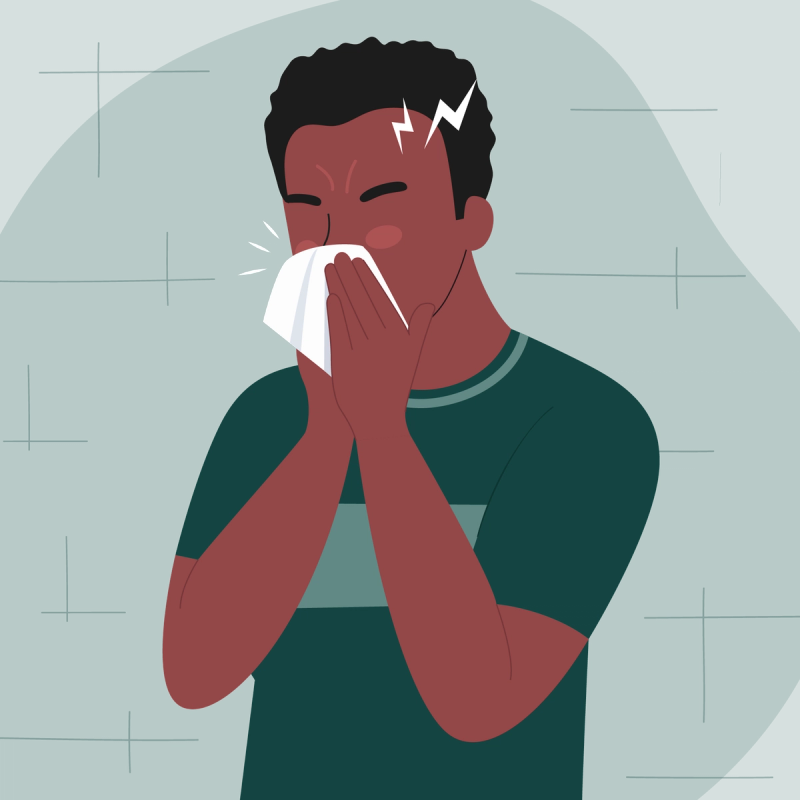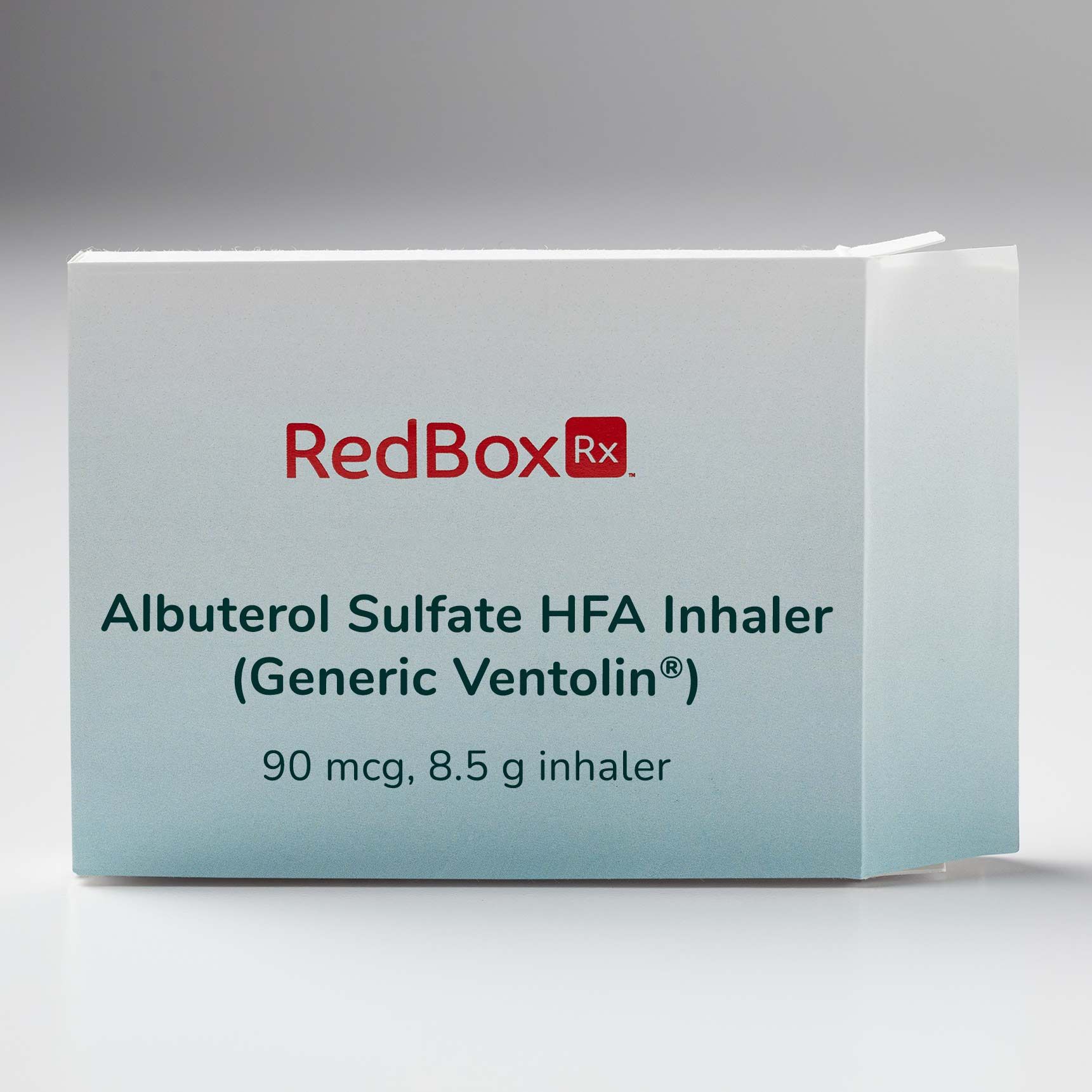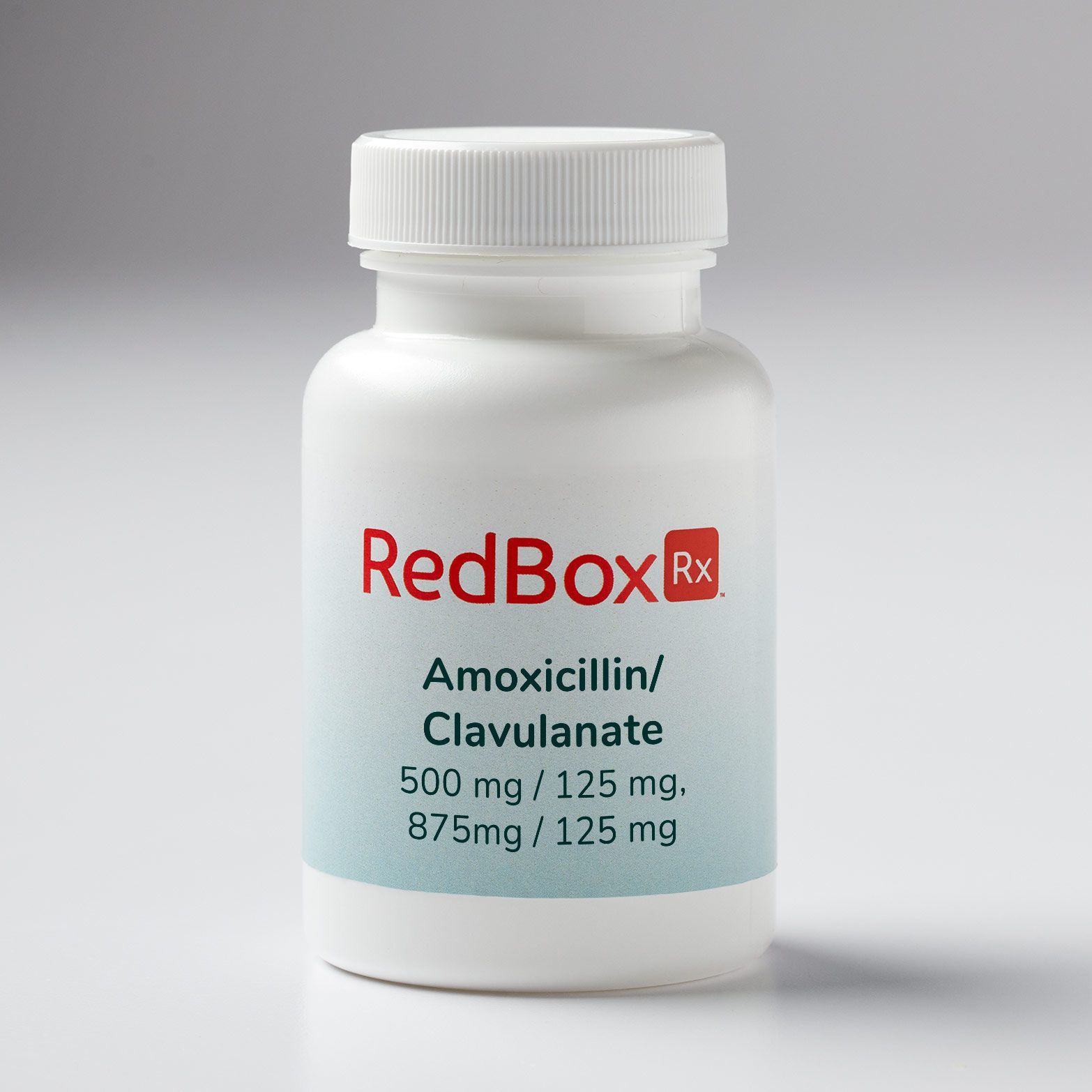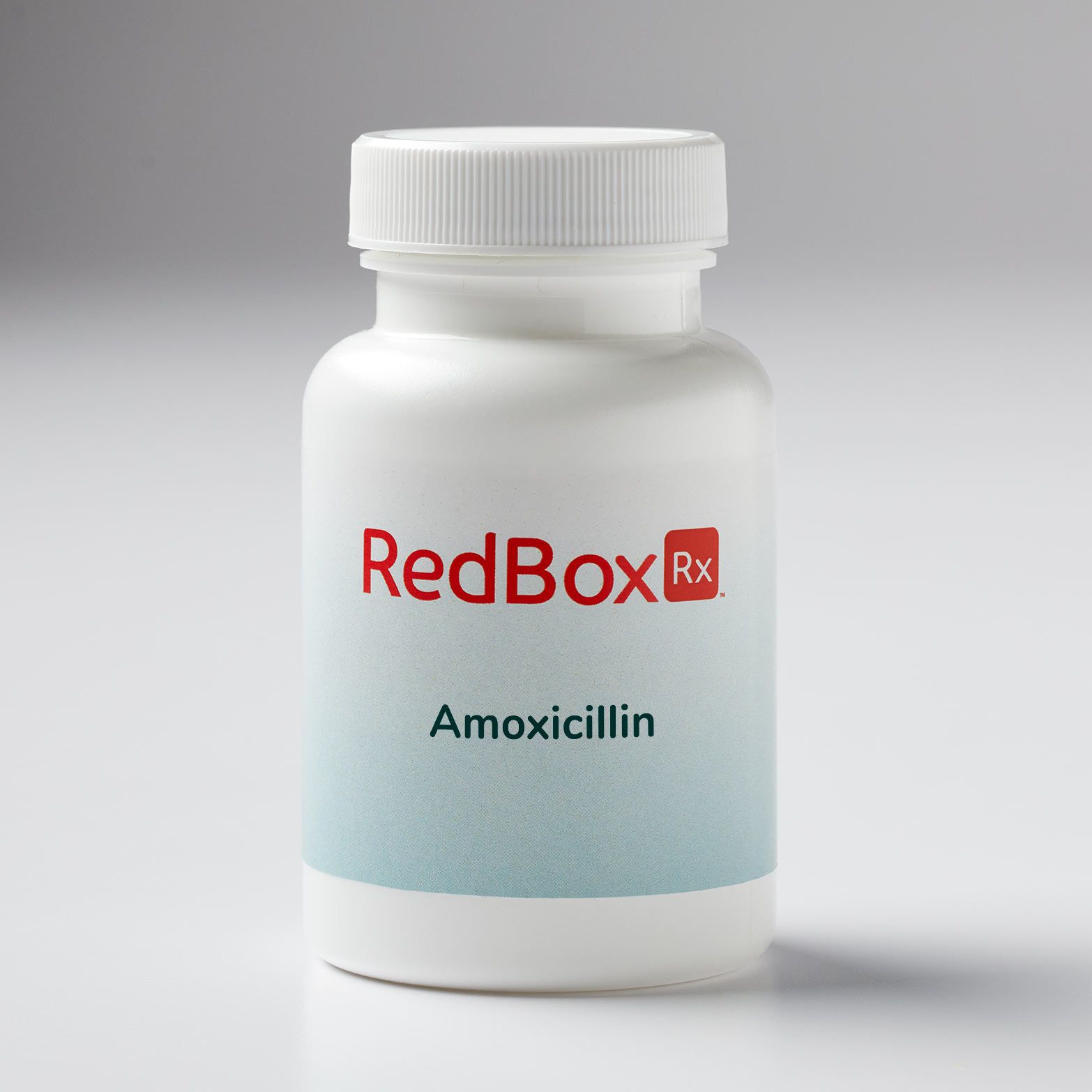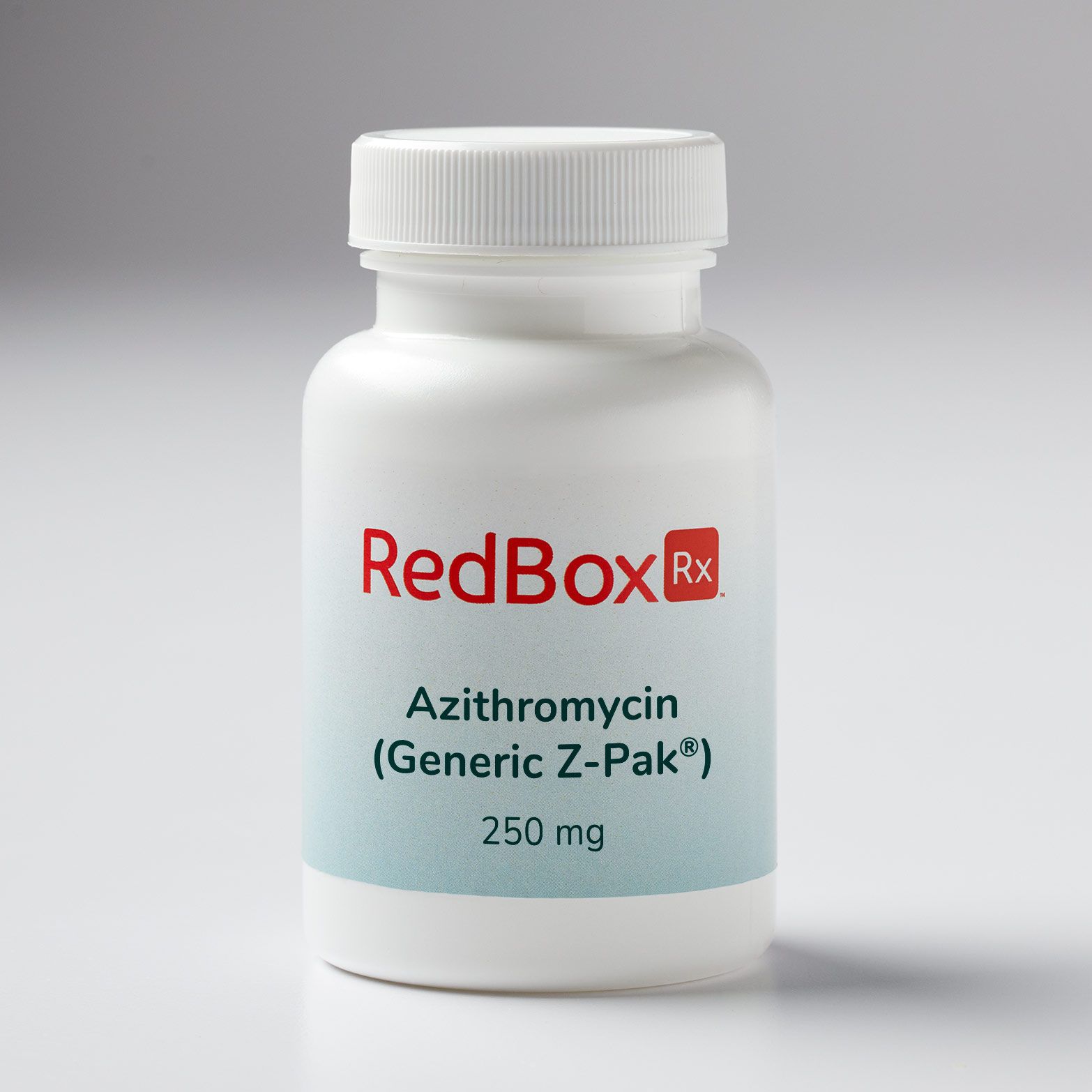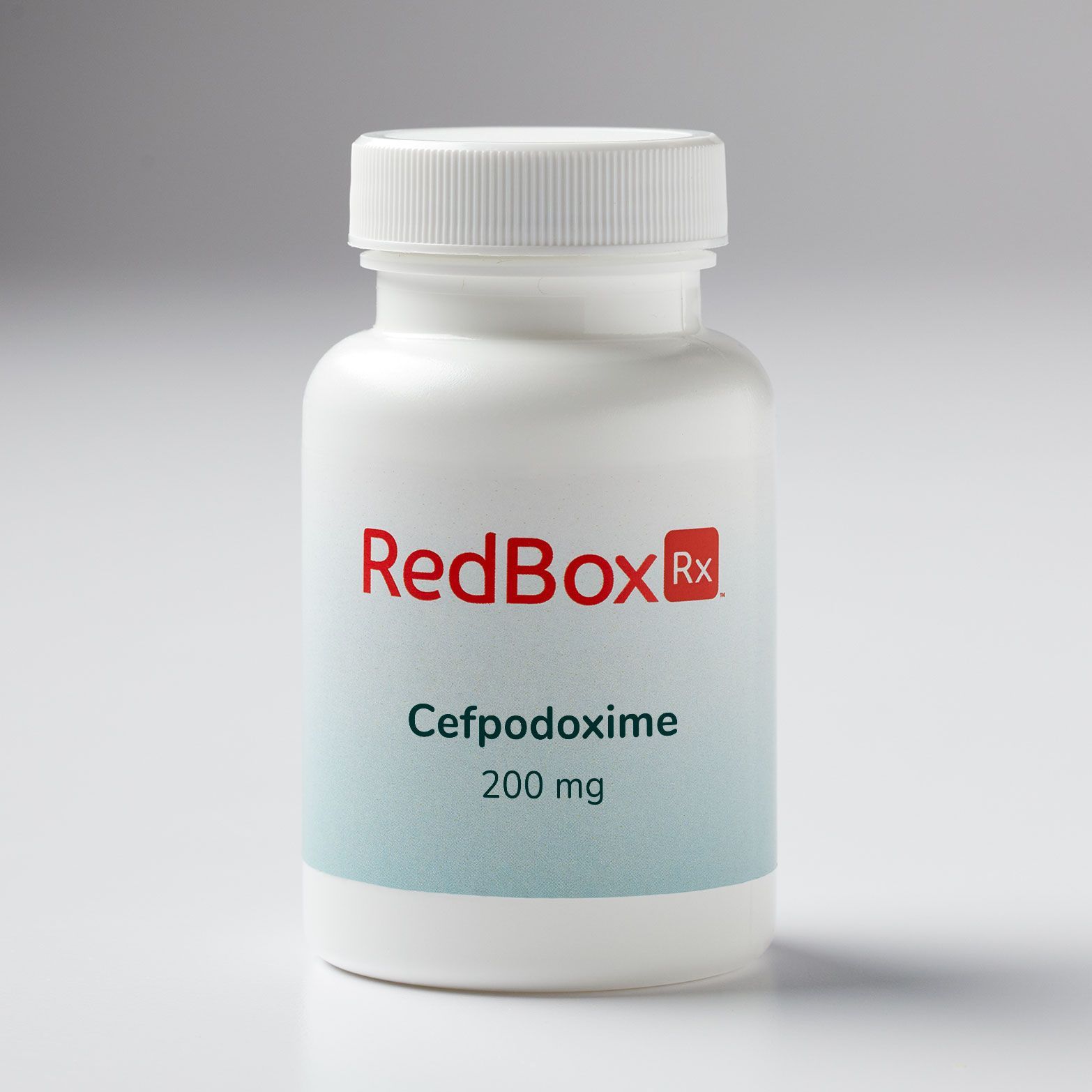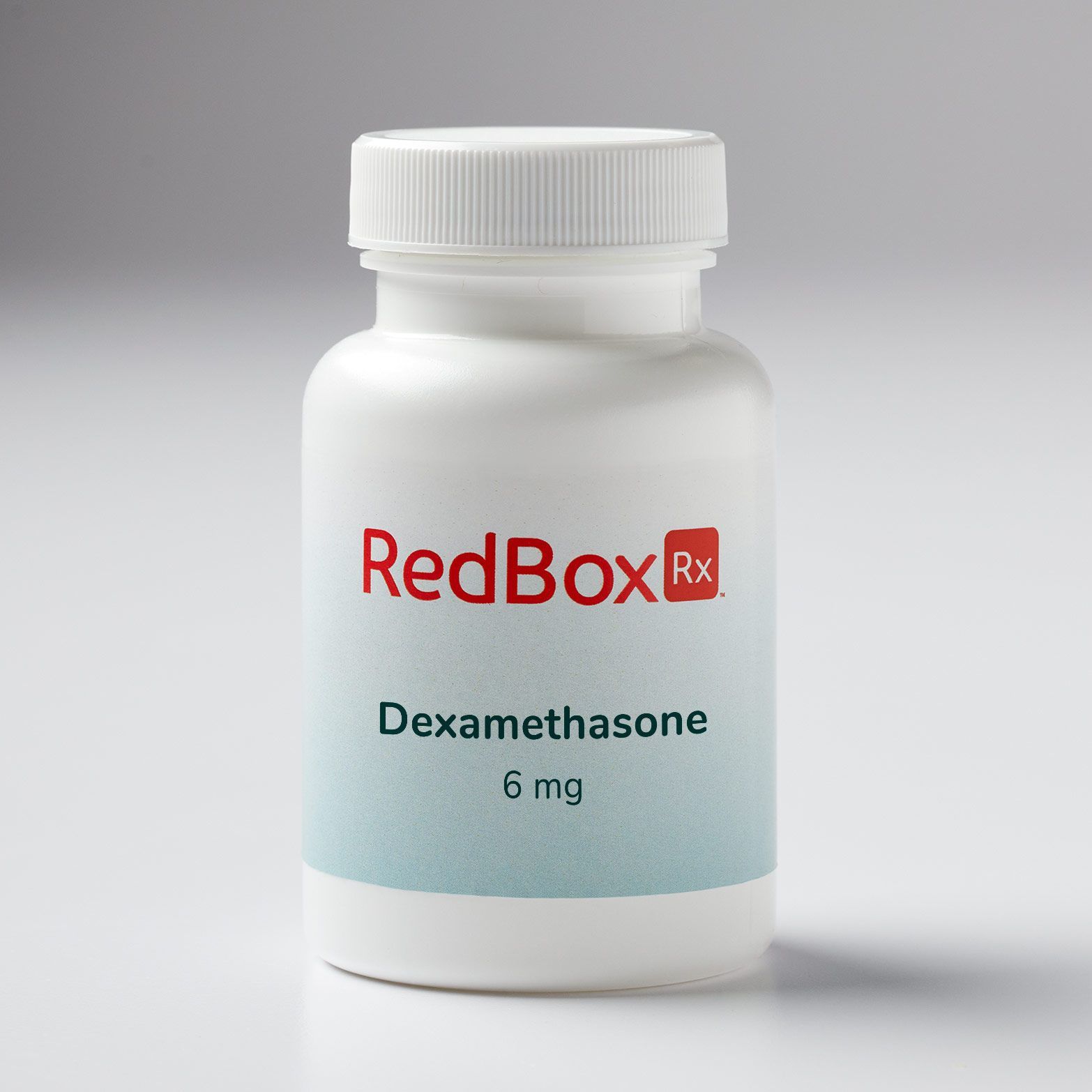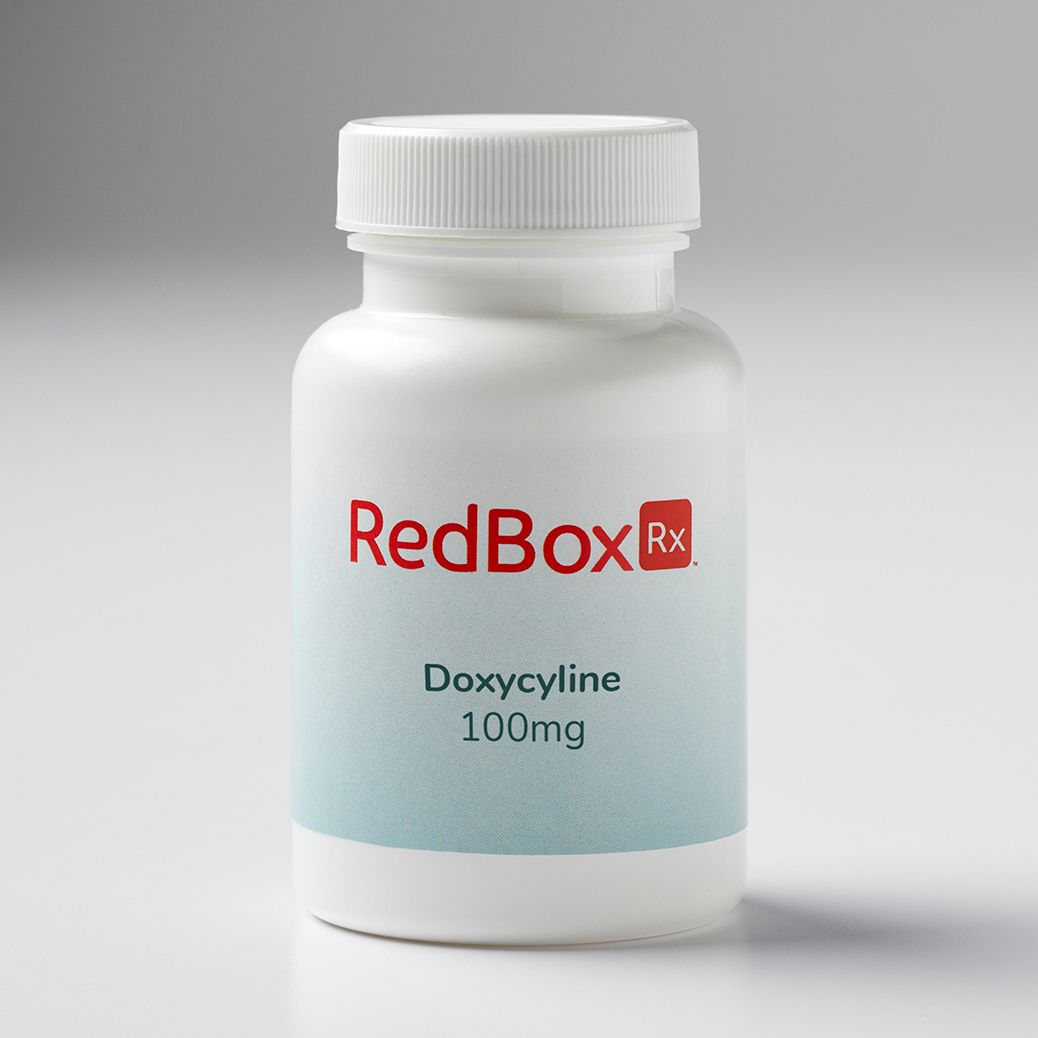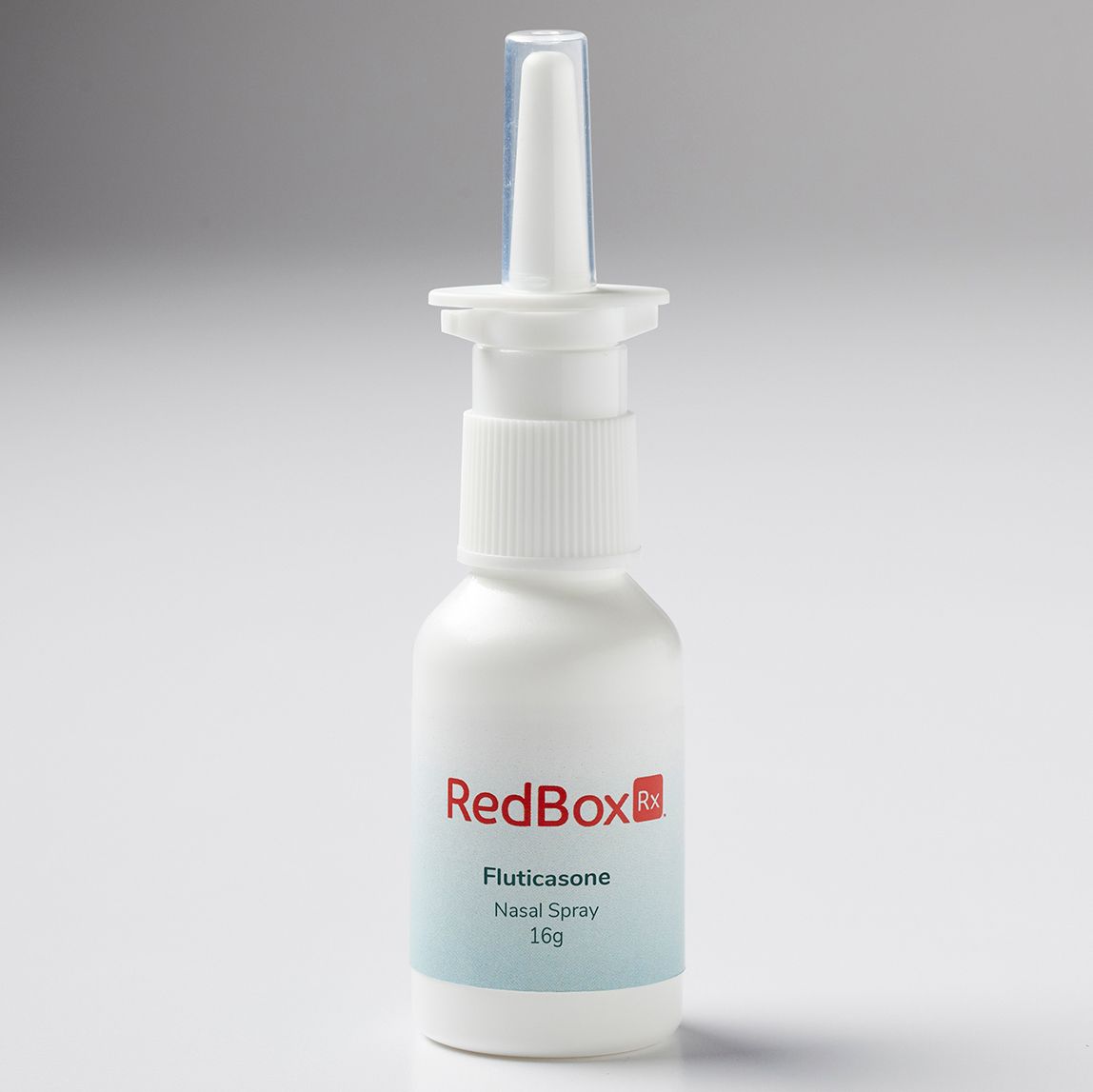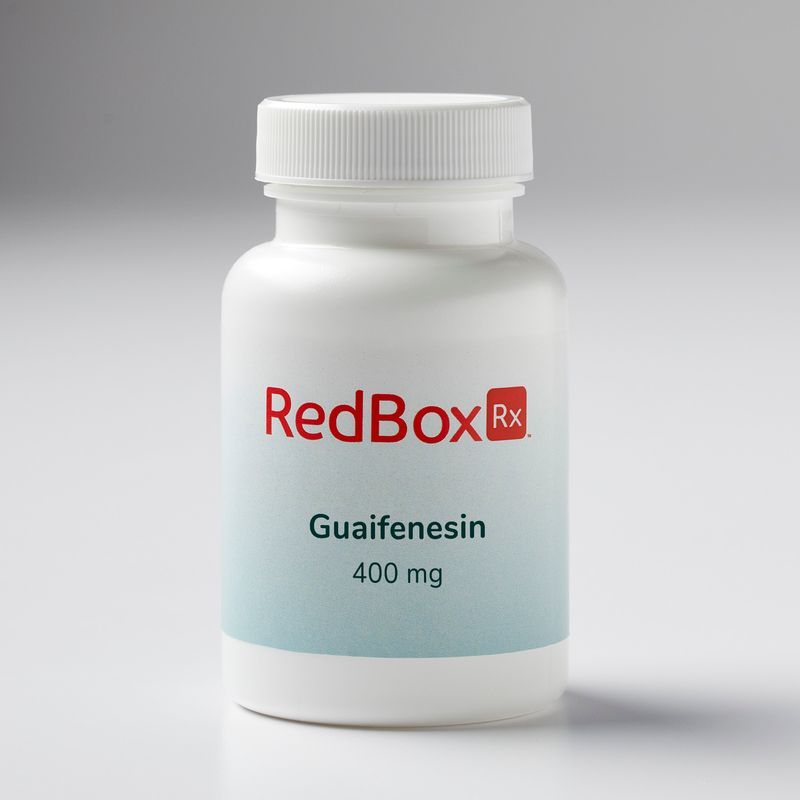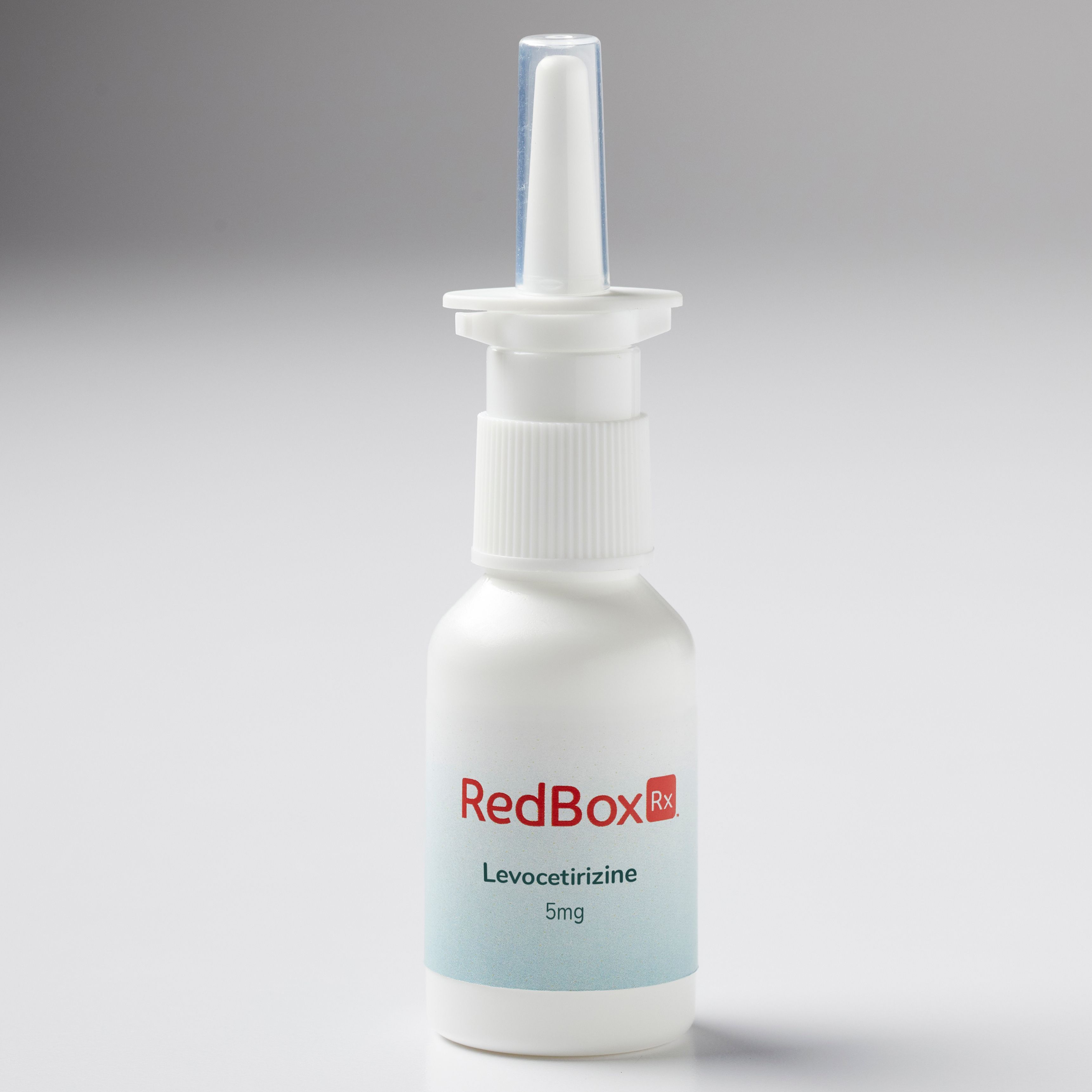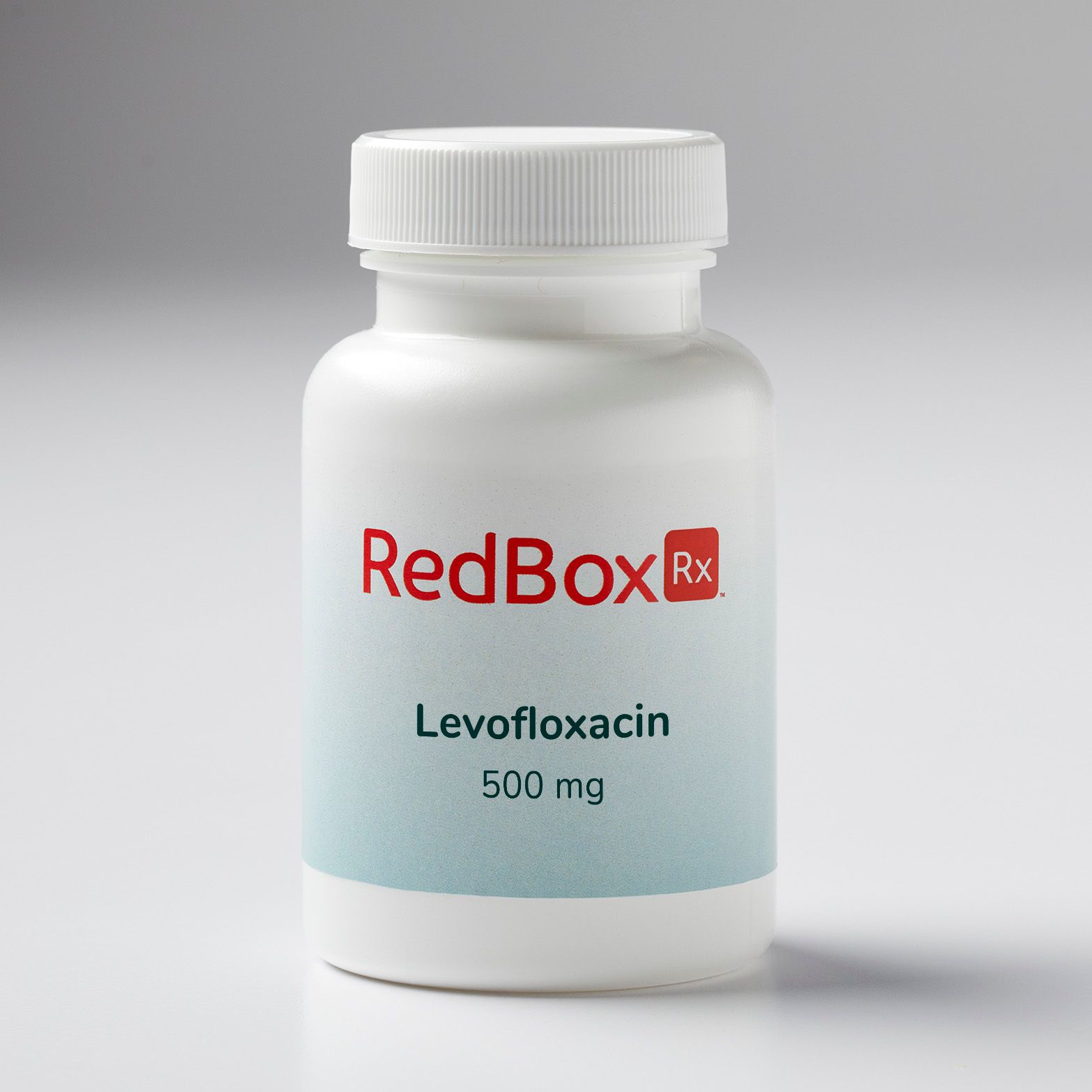Sinus Infection Treatment Price Example
RedBox Rx offers transparent, affordable pricing on treatment for sinus infections. Below is an example of what you can expect to pay for medication and an online doctor consult if amoxicillin is prescribed by your RedBox Rx doctor. Start an online consult now.
| Sinus Infection Treatment | Med Cost | Doctor Consult* | Total Cost |
|---|---|---|---|
Amoxicillin 500 mg – 21 capsules |
$20 |
$39 |
$59 |
*You save money on your doctor consultation fee by selecting RedBox Rx pharmacy and having treatment shipped to your address. Consultation fee increases to $69 if another pharmacy is used.
About Sinus Infections
A sinus infection, also known as sinusitis, is one of the most common conditions sending people to the doctor in the U.S. and a top reasons antibiotics are prescribed.1 Learn more about the types of sinusitis and how to find the proper, convenient treatments.
-
Sinusitis, also known as a sinus infection or sinus headache, is inflammation of the sinuses in your forehead, cheeks and nose. Sinus infection signs and symptoms can include:2
Runny nose with thick yellow or green mucus.
Postnasal drip.
Stuffy nose.
Facial or sinus pressure.
Pressure or pain in your teeth.
Ear pressure or pain.
Fever.
Bad breath or a bad taste in your mouth.
Cough.
Headache.
Tiredness.
-
There are different types of sinusitis classified by how long the infection lasts and the underlying cause of the sinus infection. Types of sinusitis based on duration include:3
Acute sinusitis symptoms lasting less than four weeks. Usually caused by a cold virus.
Subacute sinusitis symptoms last four to 12 weeks.
Chronic sinusitis symptoms last at least 12 weeks. Usually caused by bacteria.
Recurrent acute sinusitis symptoms come back at least four times a year and last less than two weeks each time.
Types of sinusitis based on cause include:
Bacterial sinusitis is caused by a bacterial infection.
Viral sinusitis is caused by a viral infection.
Fungal sinusitis is caused by a fungal infection.
Allergic sinusitis symptoms are caused or worsened by existing allergies.4
-
Sinusitis is caused by anything that can trigger inflammation in the sinus passages, including:5
Bacteria.
Viruses, including cold and flu viruses.
Nasal and seasonal allergies.
Fungus.
Certain conditions or behaviors can increase the risk of sinusitis, including:
Allergies.
Nasal polyps.
Smoking.
Asthma.
Deviated septum.
Weakened immune system.
-
A sinus infection can last anywhere from a week to more than 12 weeks depending on the cause, individual and treatment. Acute sinusitis, the most common kind, usually lasts between a week and 10 days but can last up to four weeks.6
-
Certain individuals are at a greater risk of developing chronic sinusitis because of pre-existing conditions, including:7
Conditions that block airways like allergies, asthma or cystic fibrosis.
Weakened immune system.
Nasal polyps.
Tooth infection.
-
While sinusitis has overlapping symptoms with other conditions, there are some ways to identify whether it is a sinus infection or something else.
Sinus Infection vs. Cold
Symptoms of a cold include a runny or stuffy nose, watery eyes, sneezing, sore throat, fever and body aches. The symptoms usually develop over several days and resolve within a few days.
Identifying symptoms of a sinus infection include a swollen feeling in the face and nose, thick mucus, post-nasal drip and cough. Symptoms last at least a week. A cold virus can be the cause of sinusitis when the symptoms last more than a week.8
Sinus Infection vs. COVID-19
Symptoms of a sinus infection primarily occur in the face, nose and throat. The symptoms come on quickly and can last anywhere from a few days to several weeks.
COVID-19 is identified by respiratory symptoms like a dry cough, chest tightness and shortness of breath. Symptoms can last one to two weeks, sometimes longer.9
Sinusitis vs. Rhinitis
Sinusitis is inflammation of the sinuses and rhinitis is inflammation of the nose. They can occur separately or at the same time. When inflammation occurs in both the nose and sinuses, the term used is rhinosinusitis.10
-
Sinusitis is not contagious. However, the viruses and bacteria that cause a sinus infection can be contagious.11
-
In most cases, sinusitis will resolve on its own. Treatment can help ease uncomfortable sinus infection symptoms. In the case of bacterial sinusitis, the condition will often resolve on its own. However, if the condition is severe or long-lasting, it may require antibiotics.12
-
There are ways to reduce the risk of getting sinusitis, including:13
Saline nasal rinses (follow your provider’s guidance).
Managing allergy symptoms with medications or avoiding allergens.
Steroid nasal sprays (follow your provider’s guidance).
Good handwashing habits.
Quit smoking and avoid secondhand smoke.
-
The risk of acute sinusitis can be reduced, but not entirely eliminated. In the case of chronic sinusitis, eliminating the cause could cure the condition. For example, removing polyps may cure chronic sinusitis.14

96.2%
96.2% of sinus infections were resolved in patients taking antibiotics.
Source: National Library of Medicine
Sorry, we’re closed for today. Our U.S. licensed medical providers are available daily 7 a.m. to 9 p.m. CST via live video visit. We look forward to serving you soon. Email us anytime at [email protected].
What Our Patients Are Saying
-
“
It was fast and easy. It's nice not having to do in-person visits due to everyone's time and money.
Pat H.
-
“
I started the process with two other online providers, but stopped short of completing the purchase, either due to the cost or complexity. I'm glad I found RedBox Rx.
Savina L.
-
“
Excellent service especially when my insurance doesn't cover much of anything. The prices are reasonable and it’s so easy. I’m very grateful RedBox Rx exists. It’s saving me a lot of time and money.
Theresa D.
Sinus Infection Treatment FAQs
-
Sinusitis can be treated with over-the-counter (OTC) options and prescription medications. OTC treatments for sinusitis include:
Saline nasal rinses.
OTC decongestants.
OTC cold and allergy medications.
Providers may want you to wait for approximately 10 days to see if the sinus infection resolves on its own. From there, a provider may prescribe:15
Antibiotics like amoxicillin (Amoxil®), amoxicillin-clavulanate (Augmentin®), azithromycin (Z-Pak®), cefpodoxime (Vantin®), doxycycline (Vibramycin®), and levofloxacin (Levaquin®).
Oral or topical decongestants like guaifenesin (Mucinex®).
Intranasal steroid sprays like fluticasone (Flonase®).
Oral steroids like dexamethasone (Decadron®).
Antihistamines like levocetrizine (Xyzal®).
Inhalers like albuterol sulfate HFA (ProAir® HFA).
-
Treatment options will vary by sinusitis type.
Acute sinusitis, the most common type, can generally be treated at home or with OTC options. Viral sinusitis, including those caused by a cold or flu virus, can also be treated with OTC treatments or self-care.
Bacterial sinusitis will also often resolve on its own within a couple of weeks. If symptoms are severe or long-lasting, bacterial sinus infections can be treated with antibiotics.
Allergic sinusitis can be treated with OTC or prescription allergy medications or antihistamines.
For chronic or recurring sinusitis, the underlying cause is what needs to be treated. Underlying causes can include asthma, cystic fibrosis, nasal polyps, tooth infection or a weakened immune system.16
Meet with a medical provider to determine the best treatment for your sinus infection symptoms.
-
Sinusitis is a condition that benefits from at home treatments. This can include OTC medications or sinusitis self-care remedies like:17
Rest.
Drink plenty of fluids.
Breathing steam from a hot shower or hot bowl of water.
Warm compress to the face.
Rinse nasal passages with a neti pot or similar device.
-
Sinusitis often resolves on its own if left untreated. In rare cases, the infection causing sinusitis can spread to other parts of the body like the brain, eyes or nearby bone.18
Although quite rare, watch for these symptoms to tell if a sinus infection has spread to brain:19
Headache lasting one week or more.
Altered mental state.
Seizures.
Changes in speech, vision or hearing.
Vomiting.
Swelling of the forehead.
-
Yes, you can get prescription medications for sinus infections online with telehealth providers like RedBox Rx. Start an online assessment to see if prescription sinusitis medication is right for you.
-
How RedBox Rx Works
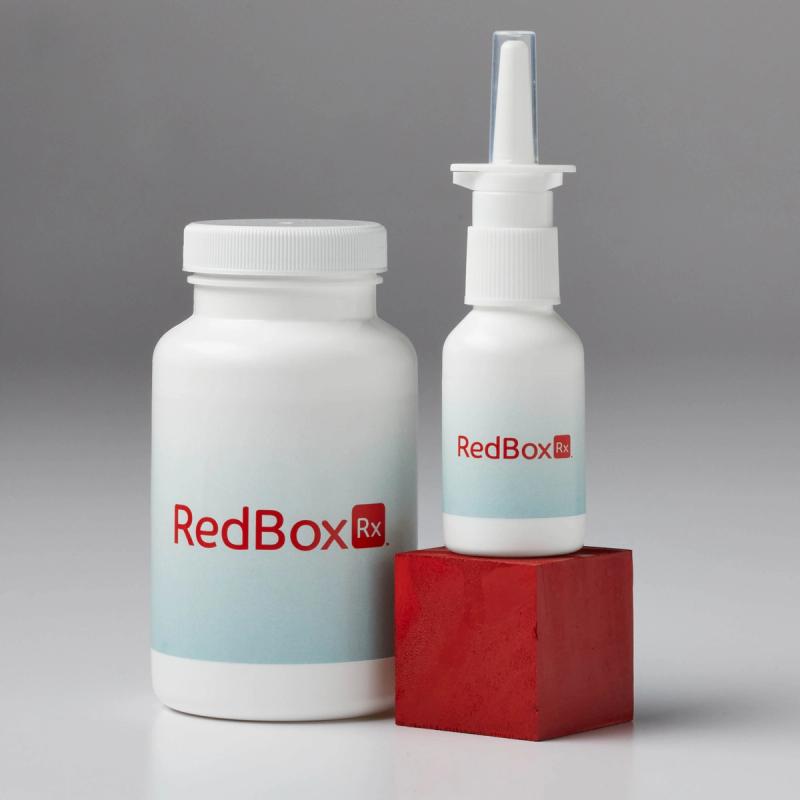
Why Choose RedBox Rx
Wide selection, easy process and low prices.
- No membership fees.
- Low-cost $39 telehealth consult with licensed medical provider.
- Medications starting at $10 per treatment.
- Confidential, private and secure.
- Free standard shipping or expedited/overnight available.
Sorry, we’re closed for today. Our U.S. licensed medical providers are available daily 7 a.m. to 9 p.m. CST via live video visit. We look forward to serving you soon. Email us anytime at [email protected].

